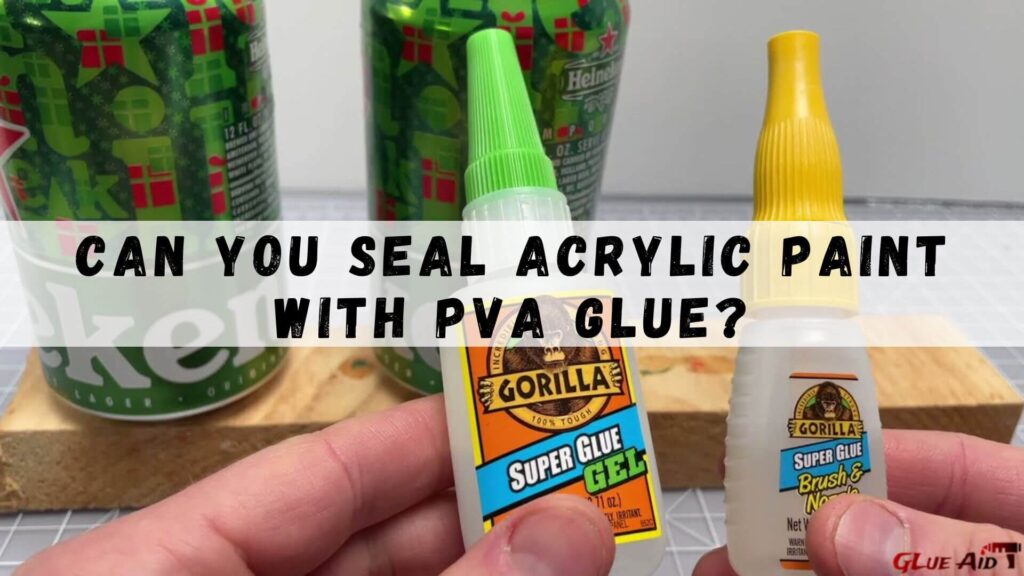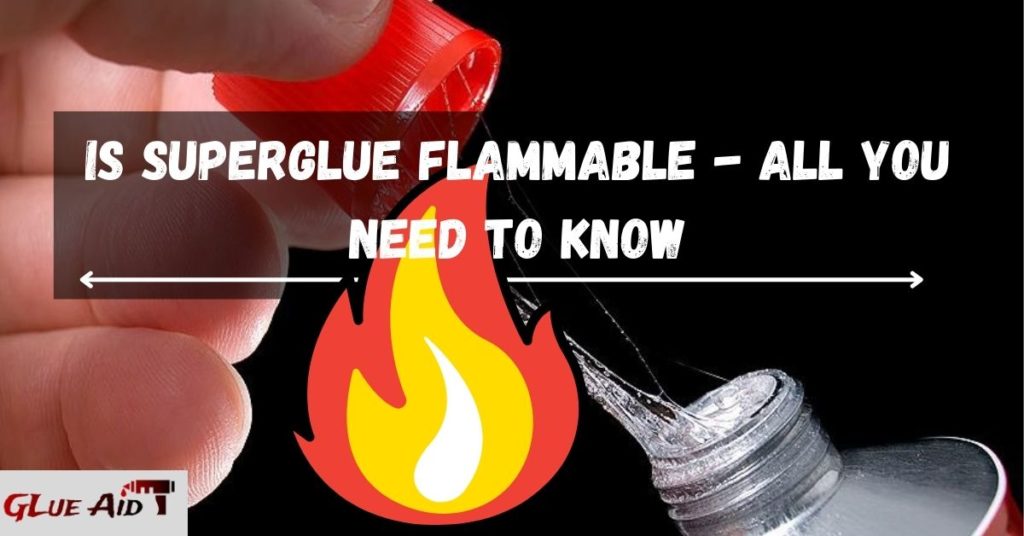Have you ever used Super Glue? If so, you’re probably familiar with the unpleasant fumes it emits. But how long do super glue fumes last, and is it safe to be around them? In this blog post, we’ll discuss the dangers of super glue fumes and provide some tips for keeping yourself safe. We’ll also explore how long the fumes will linger in a room. Read on to learn more!
Table of Contents
What Are Super Glue Fumes, And What Are Their Dangers?

Super glue is an adhesive made of cyanoacrylate. When this substance comes into contact with moisture, it forms a strong bond. However, the fumes emitted by Super Glue can be dangerous to your health. Inhaling these fumes can irritate your respiratory system and cause headaches, dizziness, and nausea. If you’re exposed to a large number of glue fumes, you may even experience difficulty breathing.
It’s important to note that Super Glue fumes are not just dangerous to humans. They can also be harmful to pets. If your animal companion inhales too much of the fumes, they may experience the same health problems as you would. In severe cases, Super Glue fumes can even be fatal.
So, How Long Do Super Glue Fumes Last?
The length of time that super glue fumes will linger in a room depends on a few factors, including the size of the room and the ventilation. In general, however, you can expect the fumes to stick around for at least a few hours. If you’re worried about the fumes, it’s best to open a window or door to let them out.
If you’re using super glue in a small space, like a bathroom, the fumes will be more concentrated. In this case, it’s even more important to ensure that the room is well-ventilated. You may also want to consider wearing a mask to avoid inhaling the fumes.
What Should You Do If You’re Exposed To Super Glue Fumes?

If you’re exposed to super glue fumes, the first thing you should do is move to a well-ventilated area.
If you’re outdoors, move away from the source of the fumes and into the open air.
If you’re indoors, open windows and doors to let fresh air in.
Once you’re in a well-ventilated area, try to calm down and take slow, deep breaths.
In most cases, the symptoms of Super Glue exposure will disappear within a few minutes. However, if you experience any difficulty breathing or if your symptoms persist for more than a few minutes, you should seek medical attention immediately.
Super Glue fumes can be irritating to the lungs, so it’s important to get medical help if you have any concerns. Remember, if you’re ever exposed to hazardous materials, it’s always best to err on the side of caution and seek medical attention as soon as possible.
How to Reduce Super Glue Fumes?
When working with Super Glue, it can be difficult to avoid the strong fumes that fill the room. For those who are sensitive to the smell of super glue or just want to reduce the number of fumes in their workspace, there are a few simple steps that can be taken.
The first step is to ensure proper ventilation in your workspace. Make sure that windows and doors are open and fans are running so that air can circulate throughout the room. This will help disperse any fumes quickly and effectively.
Another step is to use Super Glue sparingly by keeping it away from other materials such as wood or fabrics which may absorb some of the gases released from Super Glue when applied. Additionally, using a fan near your workspace will help blow some of the fumes away from you and out of your immediate area.
Tips For Avoiding Super Glue Fumes
There are a few things you can do to avoid being exposed to super glue fumes:
- Use gloves: When you’re using super glue, be sure to wear gloves. This will help to protect your skin from the adhesive and keep the fumes away from your face.
- Work in a well-ventilated area: As we mentioned, it’s important to work in a room with good ventilation when you’re using super glue. If possible, open a window or door to let the fumes out.
- Use a respirator: A respirator is a device that covers your nose and mouth to prevent you from inhaling dangerous fumes. If you’re going to be working with super glue, it’s a good idea to invest in a quality respirator.
Keep in mind that these tips will also help to protect you from other harmful chemicals, such as paint fumes.
FAQs About How Long Do Super Glue Fumes Last

What Happens If You Inhale Fumes From Super Glue?
Inhalation of fumes associated with Super Glue can have adverse effects on the respiratory system, as the chemicals present within the glue are typically volatile organic compounds (VOCs). Upon entering into the lungs, these VOCs can cause irritation and inflammation leading to acute respiratory distress syndrome (ARDS) including symptoms such as shortness of breath, coughing, and wheezing.
Is Super Glue Still Toxic After It Dries?
Super Glue, a cyanoacrylate adhesive, is a well-known product used for various types of bonding. Despite its widespread use, it is important to note that Super Glue contains potentially toxic compounds such as ethyl cyanoacetate and benzene. While the adhesive is known to be safe once it has dried, there may still be residual toxicity present due to the aforementioned compounds.
Is The Smell Of Super Glue Toxic?
The potential toxicity of super glue fumes has been a source of great scientific debate in recent years, as it is composed of a variety of volatile organic compounds (VOCs) which could have significant adverse effects on human health. Due to the complexity of the chemical composition and its potential for inhalation, further research into the long-term effects should be conducted to assess whether or not exposure to these fumes would be harmful.
How Long Does Super Glue Take To Dry In Air?
Super glue can take anywhere from a few seconds to several minutes to dry due to its polyurethane-based components which possess polymeric properties.
Can You Get Sick From Smelling Glue?
Given the prevalence of glue in everyday life, it is not surprising that some people are curious as to whether or not it can cause adverse health effects. Inhalation of adhesives has been linked to a variety of respiratory and neurological symptoms including headache, dizziness, chest tightness, and difficulty breathing. However, these effects are typically attributed to volatile organic compounds (VOCs) contained in the adhesive itself rather than to the aroma of the glue.
Is Super Glue Cancerous?
It is a well-established fact that Super Glue has been known to be carcinogenic, meaning it has the potential to cause cancer in living tissue. It is due to its component cyanoacrylate, which is a chemical substance found in many types of glue and adhesives. Studies have shown that it can be toxic to humans when inhaled in large amounts and over long periods of time.
In conclusion
Super glue fumes can be dangerous to your health, so it’s important to take precautions when you’re using this product. Be sure to work in a well-ventilated area and wear gloves and a respirator if possible. If you’re concerned about the fumes, open a window or door to let them out. And remember, if you have pets, they may be vulnerable to fumes as well. If you think your animal companion has inhaled too much super glue, contact a veterinarian immediately.
Relevant Resources:
- Why is Super Glue Age Restricted? Know the Reason Behind This
- How to Fix a Hole in an Air Mattress With Super Glue
- Does Super Glue Work on Rubber
- Is Super Glue Conductive
- Can You Super Glue Wires Together – Best Guides Ever
- Is Super glue Waterproof
- Can You Use Super Glue for Fake Nails
- How Long Does Super Glue Take to Dry
- Is Superglue Flammable
- How To Remove Super Glue From Retainer
- Super Glue Alternatives
- Does Super Glue Work on Leather
- Does Super Glue Work on Metal




